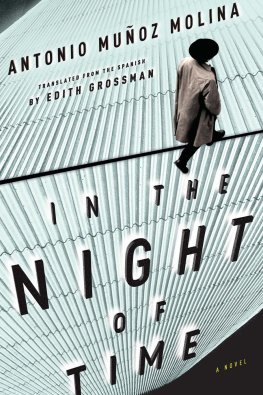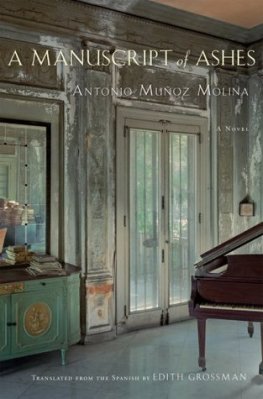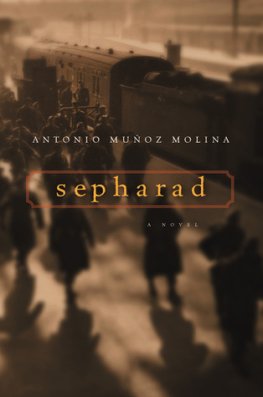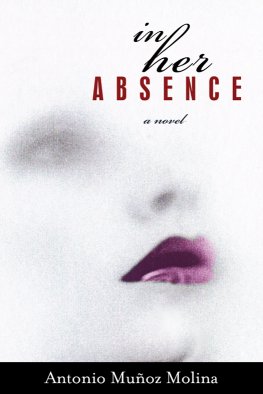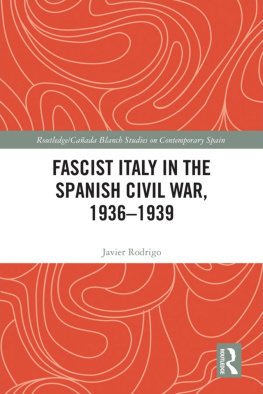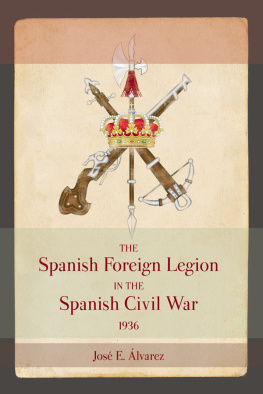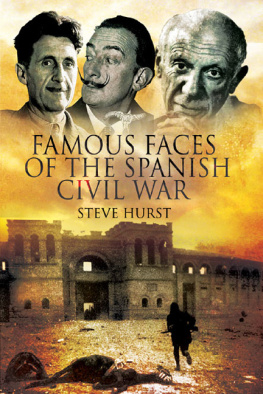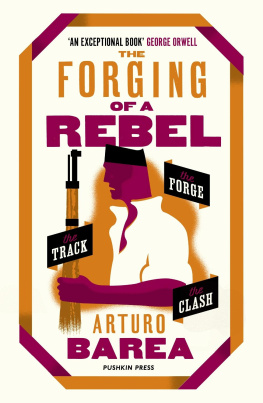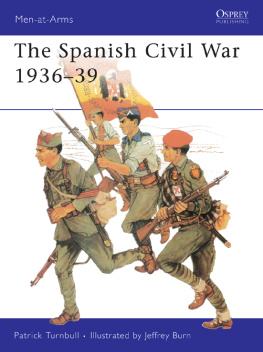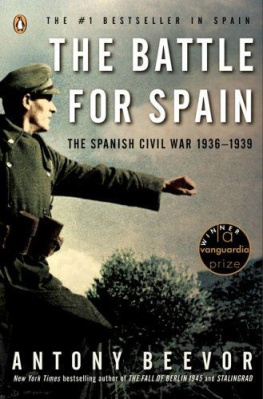Antonio Munoz Molina
In the Night of Time
What I am now I owe to you.
Ford Madox Ford, The Good Soldier
In the events in Spain I see an insult, a revolt against intelligence, non-rationality and uncivil primitivism unleashed to such an extent that the foundations of my own rationality are shaken. In this conflict, my judgment should lead me to rejection, to turning my back on everything reason condemns. I cannot. My affliction as a Spaniard dominates everything. This voluntary servitude will be with me forever, and I can never be an exile. I feel all things Spanish as my own, and even the most odious must be endured, like a painful malady. But that does not prevent me from understanding the disease that we are dying of, or more precisely, the disease we have already died of; because everything we might say now about the past sounds like something from another world.
Manuel Azaa
Can it be true that our country is shattered, life suspended, everything unresolved?
Pedro Salinas
SURROUNDED BY the confusion in Pennsylvania Station, Ignacio Abel stopped when he heard someone call his name. I see him first at a distance in the rush-hour crowd, a male figure identical to all the others, as in a photograph of the time, dwarfed by the immense scale of the architecture: light topcoats, raincoats, hats; womens hats, the brims at a slant and small feathers on the sides; the red visored caps of porters and railroad employees; faces blurred in the distance; coats open, the coattails flying backward because of an energetic pace; human currents that intersect but never collide, each man and woman a figure similar to the rest and yet endowed with an identity as undeniable as the unique trajectory each follows to a specific destination directional arrows, blackboards displaying the names of places and the hours of departure and arrival, metal stairs that resound and tremble beneath a gallop of footsteps, clocks hanging from iron arches or crowning the large vertical calendars that are visible from across the station. It was necessary to know it all precisely: the letters and numbers bright red like the caps of station porters that day in late October 1936. On the illuminated sphere of each of the clocks, hanging like captive globes high above the heads of the crowd, it is ten minutes to four. At that moment Ignacio Abel moves through the lobby of the station, through the great expanse of marble, high iron arches, and dirty glass vaults filtering a golden light where all the dust floats alongside the clamor of voices and footsteps.
I saw him with increasing clarity, emerging out of nowhere, almost a figment of my imagination, holding his suitcase, tired after dashing up the staircase at the entrance, through the oblique shadows of the marble columns, and into that enormous space where he might not find his way in time. I distinguished him from the others, with whom he almost merges, a dark suit, an identical raincoat, a hat, clothes perhaps too formal for this city and this time of year, European clothes, like the suitcase he carries, solid and expensive, its leather worn after so much traveling, covered by hotel and steamship-company stickers, the remains of chalk marks and customs stamps, a suitcase that weighs a great deal for his hand, aching from gripping the handle so hard. With the precision of a police report and a dream, I discover the actual details. I see them rise in front of me and crystallize at the very moment Ignacio Abel stops in the powerful currents of the crowd and turns, as if he had heard his name: someone must have seen him and shouted his name in order to be heard over the clamor, amplified by the marble walls and iron vaults, the resounding confusion of footsteps, voices, trains, the vibration of the floor, the metallic echoes of the loudspeaker announcements, the shouts of newsboys yelling the afternoon news. I feel through his mind just as I feel through his pockets or the inside of his suitcase. Ignacio Abel looks at the front pages of newspapers expecting and fearing to see a headline in which the word Spain appears, the word war, the word Madrid. And he looks at the face of every woman of a specific age and height, foolishly hoping that chance will allow him to see his lost lover, Judith Biely. In the lobbies and on the platforms of train stations, in the sheds of port installations, on the sidewalks of Paris and New York, for the past few weeks he has crossed entire forests of unknown faces that continue to multiply in his imagination when sleep begins to weigh down his eyes. Faces and voices, names, phrases in English that he hears at random and that remain hanging in air like streamers. I told you we were late but you never listen to me and now were gonna miss that goddam train. The voice also seemed to be speaking to him, so hesitant in his practical decisions, so awkward with people, holding his suitcase, in his worn European suit, vaguely funereal, like the suit of his friend Professor Rossman when he first appeared in Madrid. In his overstuffed wallet Ignacio Abel carries a picture of Judith Biely and another of his children, Lita and Miguel, smiling on a Sunday morning a few months earlier the two broken halves of his life, once incompatible, both lost now. He knows if you look at photographs too many times they no longer invoke a presence. The faces let go of their singularity, just as an article of intimate clothing treasured by a lover soon loses the intensely desirable scent of the one who wore it. In the police-file photos in Madrid the faces of the dead, the murdered, have been so severely disfigured that not even their closest relatives can identify them. What will his children see now if they look through the family albums, so carefully catalogued by their mother, for the face they have not seen for the past three months and dont know if they will see again, the one no longer identical to the face they remember? The father who fled, they will be told, the deserter, the one who chose to go to the other side, to take a train one Sunday afternoon and pretend nothing had happened, that he would return calmly to their summer house the following Saturday (though if he had stayed, its very likely hed be dead now). I see him, tall, foreign, thin by comparison with his passport photo, taken only at the beginning of June and yet at another time, before the bloody, deluded summer in Madrid and the beginning of the journey that perhaps will end in a few hours; his movements are hesitant, frightened among all those people who know their exact destinations and advance toward him with an unyielding energy, a powerful determination of husky shoulders, raised chins, flexible knees. He has heard an improbable voice speak his name, but as soon as he turns he knows no one called him, and yet he looks with that same automatic hope, seeing only the irritated faces of people now delayed, enormous men with light eyes and inflamed faces, chewing on cigars. Dont you have eyes in your head, you moron? In the hostility of strangers, eyes never play a part. In Madrid right now, looking away from a stare is one of the new strategies for survival. You better not seem afraid or youll automatically become suspect. The voice actually heard or only imagined in a kind of acoustical mirage has produced in him the response of a man about to fall asleep who thinks he has tripped on a step and either wakes startled or sinks back into sleep. But he knows he has heard his name with absolute clarity, not shouted by someone who wants to attract his attention in the noisy crowd but softly, almost a murmur, Ignacio, Ignacio Abel, a familiar voice he cant identify but is on the verge of recognizing. He doesnt even know whether its the voice of a man or a woman, the voice of someone dead or alive. On the other side of his locked door in Madrid, he heard a voice repeating his name in a hoarse, pleading tone. There he stood in silence, holding his breath, not moving in the dark, not opening the door.

